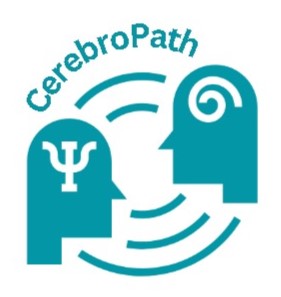DECEMBER 16, 2024

Digital Amnesia: Is Technology Rewiring Our Memory Systems?
MR. Sudipta pal
Neuropsychologist | Digital Therapy Associate
Introduction: Are We Forgetting How to Remember?
When was the last time you memorized a phone number, a grocery list, or a loved one’s birthday? Chances are, you didn’t. Instead, you relied on your smartphone, cloud storage, or some app to store that information for you. This phenomenon, often referred to as Digital Amnesia, is subtly reshaping how we think, remember, and engage with the world around us.
But is this shift harmless, or is it eroding one of humanity’s core cognitive abilities? Is this shift truly harmful, or is it just the brain adapting to new tools, as it did with writing or printing? To explore these questions, we need to understand how technology is changing not just what we remember but how we remember—and why this matters in a world that’s increasingly digital. Let’s dive deeper!
What is Digital Amnesia?
Digital Amnesia, a term popularized by Kaspersky Lab’s 2015 study, refers to our growing tendency to forget information because we know it’s stored digitally. In this study, 91% of respondents admitted they rely on their devices as an extension of their brains, and nearly 70% couldn’t recall their children’s phone numbers without checking their phones.
Digital Amnesia isn’t just about forgetting—it’s about delegating our memory responsibilities to devices. People now rely on Google, apps, and cloud services for everything from medical advice to directions, reducing their engagement with and retention of even critical knowledge. While this phenomenon appears convenient, it’s altering how our brains process and store information. This has implications not just for memory but for critical thinking, creativity, and problem-solving.
Why Does Digital Amnesia Happen?
The human brain thrives on a concept called effortful retrieval. When we actively recall information, our brain strengthens its neural connections. However, outsourcing memory tasks to technology bypasses this natural process.
A pivotal study from Sparrow et al. (2011) introduced the Google Effect, demonstrating that people are less likely to remember facts when they know they can easily access them online. In this scenario, our brain categorizes such information as “unnecessary to store,” saving energy but potentially weakening memory retention in the long term.
But here’s the twist: while technology helps us store information, it doesn’t encourage retrieval. And retrieval is the key to strengthening neural pathways. Without it, our brains become passive observers, relying on devices rather than engaging in the active process of remembering.
Does this mean technology is entirely to blame? Not exactly. Our brains are adapting to the tools we use, much like how previous generations adapted to the advent of books and calculators. However, the pace of this adaptation may be overwhelming our cognitive systems.
Thought to Ponder: Could this reliance make us better multitaskers but weaker thinkers?
Who is Paying the Price? Digital Natives vs. Digital Immigrants
While all age groups experience Digital Amnesia, the phenomenon disproportionately affects younger generations—particularly Gen Z and Millennials. These digital natives have grown up with near-constant access to technology, rarely experiencing a world without instant access to information.
For example, a study by Ward et al. (2017) showed that simply having a smartphone nearby reduces cognitive capacity, even when it’s not being used. This effect, termed the Brain Drain Hypothesis, suggests that our reliance on technology isn’t just about memory—it’s also reshaping how we think and process information.
For students and young professionals, this reliance can lead to gaps in foundational knowledge. Instead of internalizing basic concepts, they turn to quick digital fixes, which may hinder their ability to connect ideas or think critically.
Question for You: Is technology enhancing your skills, or is it replacing them?
The Social Costs: How Digital Amnesia Impacts Relationships
Have you ever been in a conversation where someone pulled out their phone to “check something” and got completely sidetracked? Or, how social gatherings are increasingly interrupted by Google searches? Digital Amnesia doesn’t just affect individual memory; it impacts social dynamics too.
A study by Wilmer et al. (2017) highlighted how excessive smartphone use can lead to difficulties in forming long-term memories and sustaining attention in social settings. This constant dependence reduces our ability to engage deeply, whether it’s remembering a friend’s story or building meaningful relationships.
Challenge Yourself: Next time you’re with loved ones, try putting your phone away. It will be much easier for you to recall not just their stories & jokes, but even facial expressions later!
The Silver Lining: Can Digital Amnesia Have Benefits?
Interestingly, forgetting isn’t always a bad thing. In cognitive psychology, “functional forgetting” allows the brain to prioritize what’s important. By outsourcing mundane tasks—like remembering grocery lists or directions—we free up mental energy for creativity and problem-solving.
However, the key is balance. Researchers like Berner et al. (2019) emphasize that while technology can be a powerful tool, it should complement rather than replace cognitive processes. If we rely too much on external memory aids, we risk losing the ability to recall even the basics. This phenomenon could lead to a generation with exceptional technological skills but weaker cognitive resilience.
Practical Tip: Before Googling an answer, pause and try to recall it. The act of effortful retrieval strengthens your memory pathways and enhances problem-solving skills.
How to Outsmart Digital Amnesia
What can you do to ensure that your brain stays sharp in the digital age?
- Practice Active Recall: Memorize important information, like phone numbers, addresses or daily tasks, to engage your memory circuits.
- Use Technology Intentionally: Before Googling, try to recall the answer or discuss it with someone.
- Set Limits on Screen Time: Take digital detoxes to reduce dependency and reengage with your surroundings and retain information naturally.
- Engage in Brain-Boosting Activities: Games like Sudoku, crossword puzzles, or memory challenges can help counteract the effects of technology reliance.
- Focus on Mindful Technology Use: Use devices as tools, not crutches, and prioritize moments of undistracted engagement.
The Takeaway: A Memory Crisis or a Cognitive Evolution?
Digital Amnesia is more than a quirky side effect of modern life—it’s a profound shift in how we process and prioritize information. As technology becomes an inseparable part of our lives, the challenge lies in leveraging it without losing our intrinsic cognitive abilities.
So, next time you’re tempted to check your phone for something you could recall, pause and give your brain a chance. Let your brain flex its muscles – it may surprise you!
Question for You: Are we truly forgetting how to remember or are we evolving into a society that remembers less but thinks more?
References:
- Berner, J., Comijs, H., Elmståhl, S., Welmer, A. K., Berglund, J. S., Anderberg, P., & Deeg, D. (2019). Maintaining cognitive function with internet use: a two-country, six-year longitudinal study. International Psychogeriatrics, 31(7), 929-936.
- THE RISE AND IMPACT OF DIGITAL AMNESIA – Why we need to protect what we no longer remember
- Sparrow, B., Liu, J., & Wegner, D. M. (2011). Google effects on memory: Cognitive consequences of having information at our fingertips. science, 333(6043), 776-778.
- Ward, A. F., Duke, K., Gneezy, A., & Bos, M. W. (2017). Brain drain: The mere presence of one’s own smartphone reduces available cognitive capacity. Journal of the association for consumer research, 2(2), 140-154.
- Wilmer, H. H., Sherman, L. E., & Chein, J. M. (2017). Smartphones and cognition: A review of research exploring the links between mobile technology habits and cognitive functioning. Frontiers in psychology, 8, 605.
